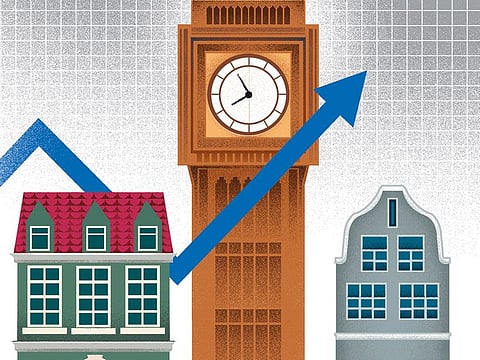Don't look to 2008 for cues on UK property market
There hasn't been a sense of absolute investor shock unlike during financial crisis

On March 26, the government suspended the UK’s housing market for nine weeks. What followed was a dramatic shutdown - Knight Frank’s business experienced a 90 per cent fall in viewings, enquires and new properties being listed with the firm.
This represented the sharpest decline in activity in living memory. We reacted quickly to the first challenge – shutting 61 offices and preparing 1,200 employees for remote working.
Ten weeks on and with restrictions on the property market now eased, the question on every client’s mind is: “How does the landscape look now?”
Of course, all eyes are focused on London to understand what might happen next. Despite ongoing travel restrictions, international buyers are more active than expected and the fall through of deals is reassuringly limited.
There is an adjustment going on, combined with the market beginning to gain momentum once more. London really is beginning to find its feet.
Factoring in a dip
During the first few days of lockdown, we forecast that prices in London would fall by 5 per cent. What has become apparent, a full month into trading, is that much of this projected decline has already been priced in.
Early sales indicators are encouraging too. Applicants and viewing numbers are up, and instructions are slowly increasing.
Current market conditions in the UK are reminiscent of the period during the Brexit negotiations with the EU. There is a mix of opportunistic bids, which are unlikely to be accepted; bids agreed at a reasonable discount; and in many cases, where the guide price is right, transactions are going through.
Release the energy
Supply has also started to catch up with demand in the UK property market as the scale of pent-up demand encourages more owners to sell. The number of new prospective buyers registering in the capital was 34 per cent above the five-year average, and outside London, new registrations reached their highest total in more than nine years last week.
Meanwhile, the number of new instructions to sell in the first fortnight of June outside the capital was 16 per cent higher than the five-year average.
Of course, London and the rest of the UK is still in the honeymoon period and a market that was dormant for eight weeks has woken up with a spring in its step.
I am confident that the impact of the pandemic on the UK’s property market will be short-term. Unlike the Global Financial Crisis (GFC), the government was fast to step in with an unprecedented support package for companies up and down the country.
This has allowed property firms to retain the best talent, ultimately benefiting customers and clients.
However, the true economic impact is still yet to be realised. A good barometer of this is what will happen in the City of London and if there are widespread job losses. The GFC saw the emergence of the accidental landlord as a result of a dramatic fall in prices in the property market.
This left many unable, or not prepared, to sell at such a loss. However these hard price falls of 2008 are just not the case today.
With so much to be positive about, the question is just how resilient will current demand remain as the new economic landscape takes shape?
- Tim Hyatt is head of Knight Frank’s UK residential operations.
Sign up for the Daily Briefing
Get the latest news and updates straight to your inbox







